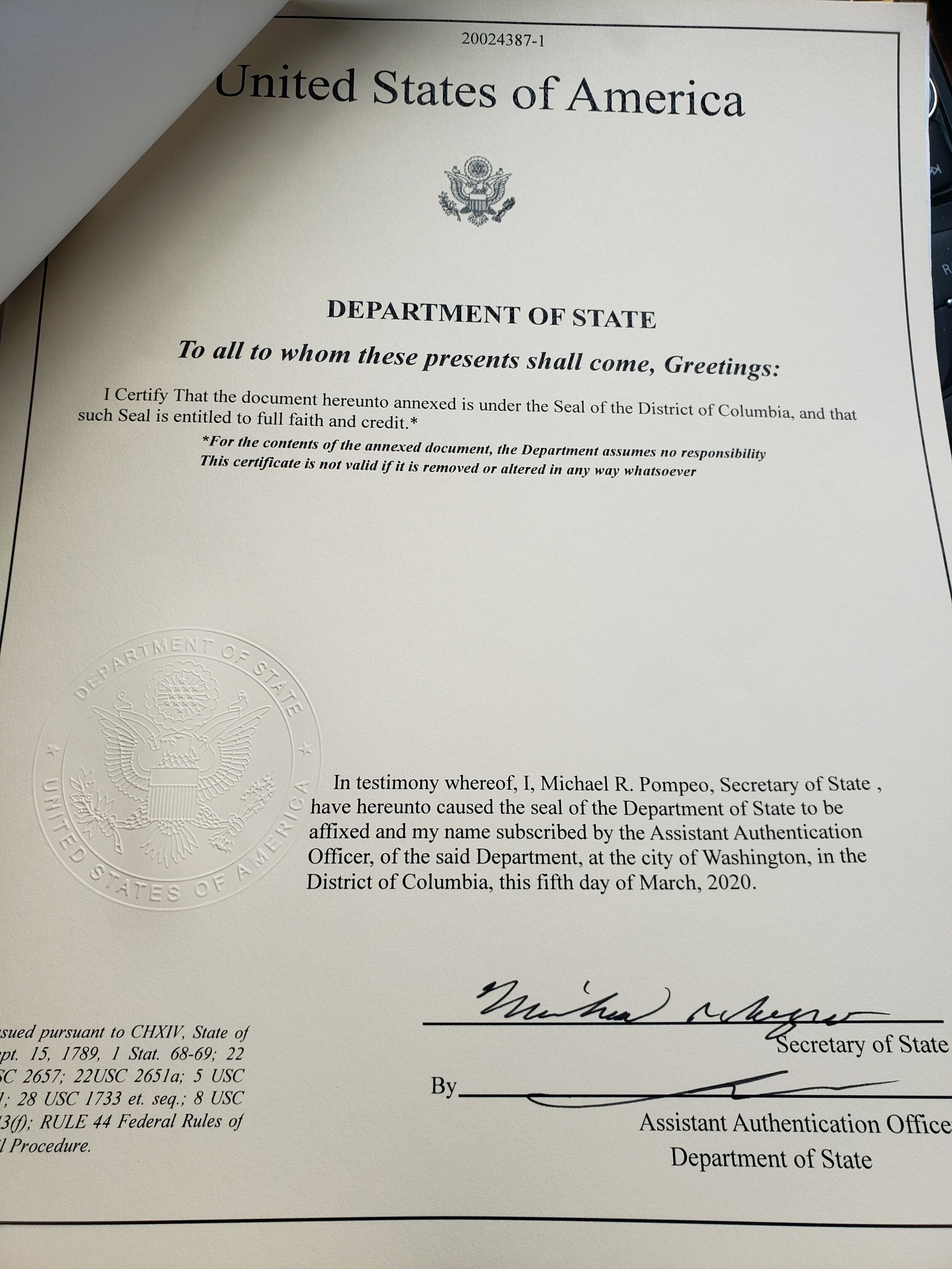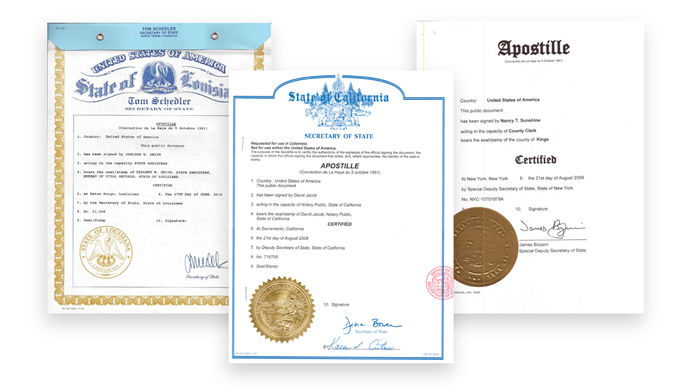Fast and Protected Houston Texas Apostille Processing
Fast and Protected Houston Texas Apostille Processing
Blog Article
Unveiling the Essential Role of Apostille in Simplifying International Record Recognition Processes
In the realm of global events, the validation of documents holds extremely important value. In the middle of the web of governmental treatments and varying lawful requirements throughout different countries, the duty of apostille emerges as a key facilitator in simplifying the process. By attaching an apostille to a file, it undertakes a simplified recognition that is acknowledged across countless nations, hence alleviating the burdens connected with cross-border file verification. As we explore the complexities of this specialized certification, the nuances in between apostille and conventional recognition techniques emerge, shedding a brand-new viewpoint on the effectiveness and performance of this important yet often ignored procedure.
Understanding Apostille Fundamentals
In the realm of file recognition for global use, comprehending the basic principles of apostille authentication is vital. An apostille is a specialized certificate that validates the authenticity of a file for usage in international nations that belong to the Hague Apostille Convention. Recognizing the basics of apostille includes identifying that it does not validate the content of the paper yet rather accredits the trademark and seal of the releasing authority. This certification streamlines the procedure of international record recognition by ensuring that the file will certainly be identified as genuine in countries that are celebrations to the Apostille Convention.
Apostilles are commonly released for essential documents such as birth certifications, marriage certificates, and scholastic records. The essential components of an apostille consist of the name of the nation where it was provided, the name of the person authorizing the record, the capability in which the person signed the record, the seal or stamp of the providing authority, and the date of issuance. By understanding these basic elements of apostille authentication, companies and individuals can navigate the intricacies of global paper validation with confidence and efficiency.
Advantages of Apostille for Recognition

Furthermore, the apostille simplifies the verification process by offering a standardized certification that confirms the credibility of the record, such as birth certifications, marriage licenses, notarized acts, and scholastic transcripts. This standardized layout lowers the threat of being rejected due to strangeness with foreign records, hence enhancing the performance of cross-border transactions.
Additionally, the apostille helps in getting rid of the need for numerous layers of authentication by federal government authorities, as the apostille itself represents the record's credibility. This not look at this site just speeds up the record recognition process however also minimizes the linked costs and governmental hurdles, making it a hassle-free and affordable remedy for individuals and organizations taking part in worldwide tasks.
Simplifying Cross-Border Record Verification
Simplifying cross-border record verification, the apostille eliminates the need for extensive and commonly challenging validation procedures normally needed when presenting records in foreign nations. By attaching an apostille to a file, the releasing country licenses the authenticity of the document, making it easily acceptable in various other countries that are component of the Hague Apostille Convention.
Furthermore, the apostille system boosts the safety and credibility of cross-border record validation by giving a transparent and worldwide accepted device for verifying the legitimacy of files. This simplification of verification processes not just benefits individuals and organizations seeking to run internationally yet also promotes smoother communication and partnership in between countries by making sure the reliability of shared documents.
Importance of Apostille in Legalisation

Apostille makes sure that legal documents such as birth certifications, marital relationship certifications, powers of lawyer, and court papers are acknowledged and accepted in international territories. The apostille process reduces the bureaucratic difficulties these details and taxing procedures commonly linked with file legalization, making global transactions much more efficient and legitimately binding.
Apostille Vs. Traditional Recognition Methods
Comparing apostille with typical recognition approaches reveals unique distinctions in the efficiency and simpleness of paper authentication procedures for international use. Apostille, as a standard and streamlined technique developed by the Hague Convention, provides an extra simple strategy to validating papers compared to standard approaches. Conventional recognition procedures commonly involve several actions, including notarization, qualification by government authorities, and consular legalization, which can be lengthy and difficult.
Apostille, on the various other hand, streamlines this process by accrediting papers with a solitary apostille certificate provided by a competent authority in the country where the paper stems (Houston TX Apostille). This certification is recognized by all member countries of the Hague Convention, removing the demand for further embassy legalization. Because of this, apostille dramatically reduces the time and effort needed for paper recognition, making it a recommended choice for organizations and individuals involved in worldwide deals
Final Thought
In conclusion, apostille plays an essential duty in simplifying global paper Extra resources validation processes by providing a standard method of verification that is recognized throughout participating nations. By improving the legalisation process, apostille removes the need for several layers of recognition, decreasing time and prices connected with cross-border record authentication. This reliable system benefits individuals and companies seeking to make use of foreign papers for lawful purposes, making sure smoother international transactions.
By attaching an apostille to a record, it undergoes a simplified recognition that is recognized across various countries, hence easing the concerns linked with cross-border document authentication. Simplifying cross-border paper verification, the apostille eliminates the need for typically challenging and extensive validation treatments commonly called for when presenting documents in foreign countries. By affixing an apostille to a file, the providing country accredits the authenticity of the paper, making it easily appropriate in various other countries that are part of the Hague Apostille Convention. By attaching an apostille to a file, the providing country certifies the authenticity of the signature, seal, or stamp on the document, making it valid for usage in an additional participant nation of the Hague Apostille Convention without the demand for additional legalisation.

Report this page